Latest
2024
Dec
Nov
Oct
Sep
Aug
Jul
Jun
May
Apr
Mar
Feb
Jan
2023
Dec
Nov
Oct
Sep
Aug
Jul
Jun
May
Apr
Mar
Feb
Jan
2022
Dec
Nov
Oct
Sep
Aug
Jul
Jun
May
Apr
Mar
Feb
Jan
2021
Dec
Nov
Oct
Sep
Aug
Jul
Jun
May
Apr
Mar
Feb
Jan
2020
Dec
Nov
Oct
Sep
Aug
Jul
Jun
May
Apr
Mar
Feb
Jan
2019
Dec
Nov
Oct
Sep
Aug
Jul
Jun
May
Apr
Mar
Feb
Jan
2018
Dec
Nov
Oct
Sep
Aug
Jul
Jun
May
Apr
Mar
Feb
Jan
2017
Dec
Nov
Oct
Sep
Aug
Jul
Jun
May
Apr
Mar
Feb
Jan
2016
Dec
Nov
Oct
Sep
Aug
Jul
Jun
May
Apr
Mar
Feb
Jan
2015
Dec
Nov
Oct
Sep
Aug
Jul
Jun
May
Apr
Mar
Feb
Jan
2014
Dec
Nov
Oct
Sep
Aug
Jul
Jun
May
Apr
Mar
Feb
Jan
2013
Dec
Nov
Oct
Sep
Aug
Jul
Jun
May
Apr
Mar
Feb
Jan
2012
Dec
Nov
Oct
Sep
Aug
Jul
Jun
May
Apr
Mar
Feb
Jan
2011
Dec
Nov
Oct
Sep
Aug
Jul
Jun
May
Apr
Mar
Feb
Jan
2010
Dec
Nov
Oct
Sep
Aug
Jul
Jun
May
Apr
Mar
Feb
Jan
2009
Dec
Nov
Oct
Sep
Aug
Jul
Jun
May
Apr
Mar
Feb
Jan
2008
Dec
Nov
Oct
Sep
Aug
Jul
Jun
May
Apr
Mar
Feb
Jan
2007
Dec
Nov
Oct
Sep
Aug
Jul
Jun
May
Apr
Mar
Feb
Jan
2006
Dec
Nov
Oct
Sep
Aug
Jul
Jun
May
Apr
Mar
Feb
Jan
2005
Dec
Nov
Oct
Sep
Aug
Jul
Jun
May
Apr
Mar
Feb
Jan
2004
Dec
Nov
Oct
Sep
Aug
Jul
Jun
May
Apr
Mar
Feb
Jan
2003
Dec
Nov
Oct
Sep
Aug
Jul
Jun
May
Apr
Mar
Feb
Jan
2002
Dec
Nov
Oct
Sep
Aug
Jul
Jun
May
Apr
Mar
Feb
Jan
2001
Dec
Oct
Sep
Aug
Jul
Jun
May
Apr
Mar
Feb
Monday, May 31, 2021
Music Week
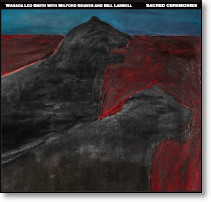 |
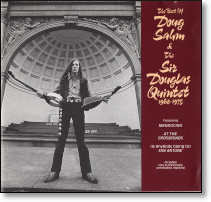 |
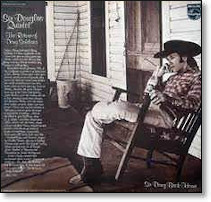 |
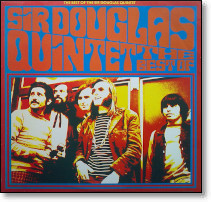 |
 |
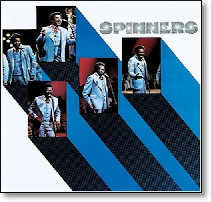 |
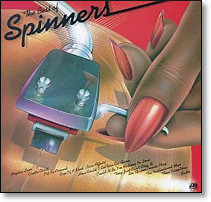 |
 |
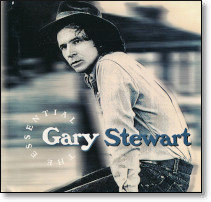 |
 |
 |
 |
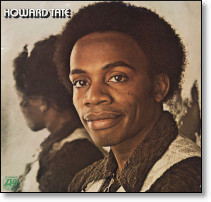 |
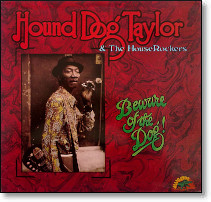 |
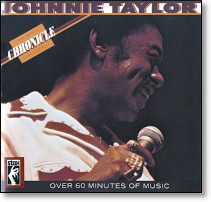 |
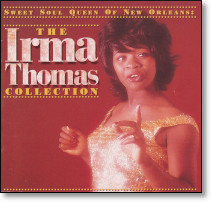 |
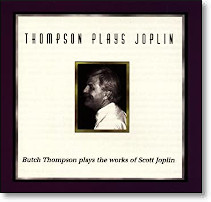 |
Expanded blog post, May archive (finished).
Music: Current count 35522 [35475] rated (+47), 208 [214] unrated (-6).
Mostly old music again, continuing down the unheard Christgau list from Sir Douglas Quintet/Doug Sahm to Butch Thompson. As I'm mostly stopping for Christgau A-listers, my own grades are skewed considerably above the usual curve. I'm 71% through the file, so I'm a couple weeks from ending my first pass (and I skipped bunches of things I didn't feel like at the time). One problem I run into a lot is compilations that are no longer in print. In most cases, I can match them with song lists picked up from other compilations, so that's what I'm doing. If I'm missing 1-3 songs, I can usually pick them up on YouTube, not that the experience is the same. YouTube has been a valuable fallback, but also a nuisance, especially when it automatically segues to something else. I almost never play something twice there, which may be why Dook of the Beatniks stalled out for me.
May archive is finished, but I haven't done the requisite indexing, or unpacked the usual Music Week comments. I'll get to them later in the week. Beginning to feel like taking some time to see what else is new, but it's easier to keep ticking off a list. Another one that might be worth exploring is this one by Brazil Beat.
While working on Peter Stampfel albums this week, I found this interview, and thought it may be of interest, both on the new box and damn near everything that came before it. Among many items of interest is a discussion of Allen Lowe's latest (and greatest) project, Turn Me Loose White Man (30 CDs, plus notes on every song -- when I bought my copy, I only got one book, but the second volume came in the mail last week, so new buyers should be the whole package; link here).
Robert Christgau wrote a review of Eric Weisbard's Songbooks: The Literature of American Popular Music. I like the idea of a book about books, so ordered a copy. Back in my teens, I developed a technique for speed-reading American history books: just read the footnotes, which is where academic historians consign their own opinions, and the bibliography (especially if it is annotated). I learned a helluva lot that way. (Of course, I also had the benefit of Robert Wine's 8th grade Amerian history course -- by far the best grade school teacher I ever had. Much later, I came up with a game: go to bookstore, pick up E.D. Hirsch's Cultural Literacy and go to a random page, check whether you knew the item. I always did, and a good 80% of the items I recalled learning in Wine's class. Of course, that also says something about Hirsch.) The footnotes give you perspective, some insight into how the author thinks, and also a quick sense of what others understand about the subject. Even more useful was pouring over John A. Garraty's Historical Viewpoints, a large book of interviews with prominent American historians. (Later came out in two paperback volumes -- long out of print and damn hard to find.) Hoping Weisbard's book will provide a similar map.
Took Friday off and cooked a nice Greek dinner. Looked like this: clockwise from top right: pastisio (mac and cheese on top of ground lamb, eggplant, and tomatoes), horiatiki (chopped salad), baked lemon fish with potatoes, saganaki (fried cheese), and sweetbreads. Had walnut cake for dessert, soaked in a honey syrup.
I wrote a postscript to my Damage Assessment piece on the latest atrocities in Gaza, with my latest thinking on how to reverse and repair the tragedy of Israel's moral descent. (Occurs to me that it's been a while since I last heard the IDF described as the world's most moral military -- no, they haven't stopped lying, but no longer consider that something to boast about.) I thought I should clarify my thoughts on political strategy, lest the proposal be misconstrued as urging simple capitulation to Israel. (I wasn't able to make the link jump directly to the PS, so you'll need to scroll down.)
Seeing a lot of flag-waving soldier fetishism in the paper, on Facebook, and elsewhere today, including a lot of "ultimate sacrifice for our freedom." I can think of a lot of dead people to mourn, and a lot of family members who were in the military, but not many who died there, and not many who made a big deal out of it. My grandfather went to Europe in the Great War, and came back with medals, but hardly ever talked about it. All four of his sons served, and Bob got shot in WWII and was semi-disabled. My father was in San Francisco waiting to get shipped out when the war ended. They sent him back home to build airplanes -- something he was better at. He thought his time in the Army was the dumbest thing he ever did. My mother's siblings were mostly too young for WWI and too old for WWII, but one brother got in each, as did a few of their children. All survived, but Uncle Allen was killed in a car accident soon after. One second cousin was killed in Vietnam, but under suspicious circumstances: official story is his gun accidentally discharged while he was in a tank, but the alternate story where he was fragged. I've known other people who were killed or maimed in Vietnam -- all were terrible wastes. Uncle James did a tour in Vietnam, but he was an aircraft mechanic and never got off the base. Over the last two decades, some younger relatives (as far as I know, all from Arkansas or Oklahoma) signed up. Always struck me as a waste, but I'm not aware of anything really bad happening to them.
I can think of many people who contributed to our freedom and well being, in many ways, but soldiering wasn't one of them. Maybe you can make a case that the Civil War -- my mother's great-grandfather and two of his sons fought in that one, for Ohio, only moving to Arkansas after the war -- and WWII were worth the fight, but neither followed up with the sort of reconstruction needed to establish freedom and justice for all, which is one reason why wars with noble slogans -- like "the war to end all wars" and "the war to make the world safe for democracy" -- only led to more wars. Another reason is that with holidays like Memorial Day we pretend they were something they weren't.
New records reviewed this week:
- Fail Better!: The Fall (2017 [2021], JACC): [cd]: B+(***)
- Doug MacDonald: Live in Hawaii (2019 [2021], DMAC Music): [cd]: B+(*)
- Keith Oxman/Frank Morelli: The Ox-Mo Incident (2019 [2021], Capri): [cd]: B+(**)
- Wadada Leo Smith: Trumpet (2016 [2021], TUM, 3CD): [cd]: B+(***)
- Wadada Leo Smith: Sacred Ceremonies (2015-16 [2021], TUM, 3CD): [cd]: A-
- Butch Thompson & Southside Aces With Charlie Devore: How Long Blues (2019 [2020], Southside Aces): [r]: B+(*)
- João Valinho/Luis Vicente/Marcelo dos Reis/Salvoandrea Lucifora: Light Machina (2020 [2021], Multikulti Project): [cd]: B+(***)
- Marta Warelis/Carlos "Zingaro"/Helena Espvall/Marcelo dos Reis: Turqoise Dream (2019 [2021], JACC): [cd]: B+(**)
Recent reissues, compilations, and vault discoveries:
- Blue Muse ([2019], Music Maker Foundation): [bc]: B+(***)
Old music:
- The Nagel Heyer Allstars: Uptown Lowdown: A Jazz Salute to the Big Apple: Live at the 1999 JVC Festival New York (1999 [2000], Nagel Heyer): [r]: B+(***)
- Doug Sahm With the Sir Douglas Quintet: Rough Edges (1969 [1973], Mercury): [r]: B+(***)
- Doug Sahm & the Sir Douglas Quintet: The Best of Doug Sahm & the Sir Douglas Quintet 1968-1975 (1968-75 [1990], Mercury): [r]: A-
- Doug Sahm: Hell of a Spell (1979 [1980], Takoma): [r]: B+(***)
- Doug Sahm: Junk Box Music (1989, Antone's): [r]: B+(**)
- Doug Sahm: The Last Real Texas Blues Band (1988-94 [1994], Antone's): [r]: B+(*)
- Sir Douglas Quintet: The Best of Sir Douglas Quintet (1965-66 [1966], Tribe): [r]: B+(**)
- Sir Douglas Quintet: The Best of Sir Douglas Quintet . . . Plus! (1965-67 [2000], Westside): [r]: B+(**)
- Sir Douglas Quintet + 2: Honkey Blues (1968, Smash): [r]: B
- Sir Douglas Quintet: Mendocino (1969, Smash): [r]: B+(**)
- Sir Douglas Quintet: Together After Five (1970, Smash): [r]: B+(**)
- Sir Douglas Quintet: 1+1+1=4 (1970, Philips): [r]: B+(*)
- Sir Douglas Quintet: The Return of Doug Saldaña (1971, Philips): [r]: A-
- Sir Douglas Quintet: The Best of the Sir Douglas Quintet (1968-71 [1980], Takoma): [r]: A-
- Percy Sledge: The Very Best of Percy Sledge (1966-94 [1998], Rhino): [r]: A-
- Spinners: Spinners (1973, Atlantic): [r]: A-
- Spinners: Mighty Love (1974, Atlantic): [r]: B+(**)
- Spinners: New and Improved (1974, Atlantic): [r]: B+(*)
- Spinners: Pick of the Litter (1975, Atlantic): [r]: B+(***)
- Spinners: Happiness Is Being With the Spinners (1976, Atlantic): [r]: B+(*)
- Spinners: The Best of Spinners (1972-76 [1978], Atlantic): [r]: A-
- Peter Stampfel: Dook of the Beatniks (1999 [2010], Piety Street Files & Archaic): [yt]: B+(***)
- Peter + Zoë Stampfel: Ass in the Air (2010, Jolly Olga): [r]: B+(**)
- Steel Pulse: Reggae Greats (1978-80 [1984], Mango): [r]: B+(***)
- Gary Stewart: Greatest Hits (1975-81 [1981], RCA): [r]: A-
- Gary Stewart: The Essential Gary Stewart (1974-82 [1997], RCA): [r]: A-
- Gary Stewart: Live at Billy Bob's Texas (2003, Smith Music Group): [r]: A-
- Super Mama Djombo: Super Mama Djombo (1980 [2003], Cobiana): [r]: B+(***)
- Systema Solar: Systema Solar (2009 [2010], Chusma): [r]: A-
- Howard Tate: Howard Tate (1967 [1969], Verve): [r]: A-
- Howard Tate: Howard Tate's Reaction (1970, Turntable): [r]: B+(**)
- Howard Tate: Howard Tate (1972, Atlantic): [r]: A-
- Hound Dog Taylor & the Houserockers: Beware of the Dog (1974 [1976], Alligator): [r]: A-
- Hound Dog Taylor & the Houserockers: Genuine Houserocking Music (1971-73 [1982], Alligator): [r]: B+(***)
- Johnnie Taylor: Chronicle: 20 Greatest Hits (1968-75 [1977], Fantasy): [r]: A-
- Irma Thomas: Sweet Soul Queen of New Orleans: The Irma Thomas Collection (1961-66 [1996], Razor & Tie): [r]: A-
- Butch Thompson: Butch Thompson Plays Jelly Roll Morton Solos (1968 [1998], Biograph): [r]: B+(***)
- Butch Thompson: Butch Plays Joplin (1997 [1998], Daring): [r]: A-
Unpacking: Found in the mail last week:
- Paul Silbergleit: The Hidden Standard (BluJazz) [05-23]
Monday, May 24, 2021
Music Week
 |
 |
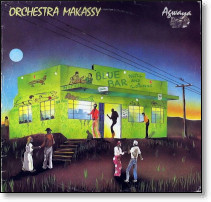 |
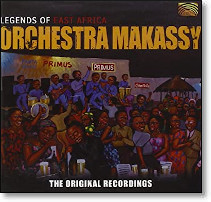 |
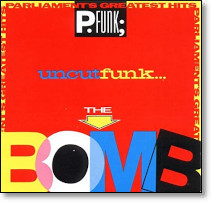 |
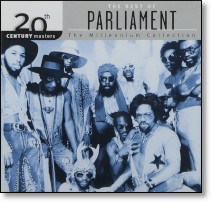 |
 |
 |
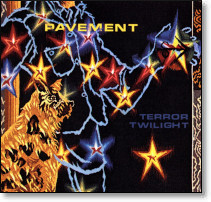 |
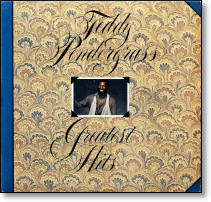 |
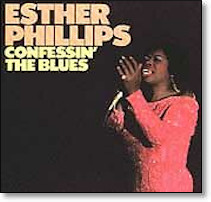 |
 |
 |
 |
Expanded blog post, May archive (in progress).
Music: Current count 35475 [35420] rated (+55), 214 [216] unrated (-2).
While I was fretting about yesterday's Israel/Palestine post, I kept powering through the unheard Christgau A-list (Nirvana to Johnny Shines this week), accumulating a substantial Old Music section. In between, I played some new jazz from my demo queue. The most tedious part occurred when I was looking for a compilation that wasn't on Napster. Sometimes I could synthesize one (or at least come damn close) by selecting tracks from other albums. This underscored for me what a mess trying to review compilations is. Several times I punted, when I couldn't find enough, but I decided I was close enough for Del Shannon.
Sometimes I'd find a searched-for album (like Agwaya) elsewhere, which led me to an extended alternative. Some compilations (like the Johnny Paycheck Greatest Hits) had to be reconstructed from later compilations. Some I looked for frustrated me. One on the list I didn't bother trying was the Rolling Stones' Rewind (1971-1984). Undoubtedly an A-, but already had many of those.
I've had less luck with YouTube lately. There must be some method for creating a playlist to sequence of song/videos approximating an album, but I don't know how to do it. I'll also note that I've seen a couple albums now on Spotify that aren't on Napster. My problems with streaming on Napster have largely abated -- I'm not convinced they won't reappear, as nothing's really changed -- so I find myself wondering whether it might be time to pick a different resource. Any expert opinions appreciated.
Starting with Sir Douglas Quintet this week. One more Monday in May, so it might be good to push to the end of the list this week, then take a fresh look at 2021 music in June. Following Christgau's May Consumer Guide, people on Facebook have been praising No-No Boy, so I did finally give his new record a spin, and liked it enough to go back to his debut, which is approximately as good. The concentration camp pieces remind me to recommend Big Bands Behind Barbed Wire, a 1998 record by Anthony Brown's Asian American Jazz Orchestra.
Surprise appearance in Facebook's "People You May Know": Mike Pompeo. One "mutual friend," a childhood neighbor I've seen once in 50 years, but thought it would be cool to add him to my limited set of "Facebook friends." By the way, my original intent in joining Facebook was to follow some family members who adopted it as their primary means of communication. Since then, I've only added people I know personally, plus a few I've corresponded with. I regularly get "friend requests" from musicians, and ignore them: nothing personal, but I don't want to see the feed clogged up with music stuff.
I infrequently post on Facebook, and when I do it's mostly what John Chacona called "food porn" (something he's better at it than I am). My posts are usually public, so you can check them out if you're interested. I do announce all of my posts on Twitter, so encourage you to follow. Looks like I have 445 followers, and 2,442 tweets. Not a lot as stats go, but I try to make them worthwhile.
At the author's request, I removed the contents to Joe Yanosik's Consumer Guide to Franco. Joe is reorganized the material as a book and/or CD, and I guess he thinks his sales prospects will improve by scarcity. I have my doubts, but it's his work, and he can do with it what he wants. At some point I may have more information. (I do know he's working on a guide book to Plastic People of the Universe -- here's a Facebook link, I think).
I set up a guests section on my website quite a while back, to publish some of Michael Tatum's writings, and I've used for a couple others, but it's never been a going concern, or even something I've promoted. But I do have that ability, and can even do a bit more. I lease a dedicated server, and can set up web sites if you have something that seems worth doing (or I can set up sub-domains under hullworks.net). I don't come close to breaking even on this, but I'm pleased to help out a few friends, and to have the flexibility for my own projects.
New records reviewed this week:
- Alchemy Sound Project: Afrika Love (2018 [2021], ARC): [cd]: B+(**)
- Rossano Baldini: Humanbeing (2020 [2021], RareNoise): [cdr]: B+(**) [05-28]
- Andre Ferreri Quintetto: Numero Uno (2021, Laser): [cd]: B+(**) [05-31]
- Nnenna Freelon: Time Traveler (2018-20 [2021], Origin): [cd]: B+(*)
- Greg Germann: Tales of Time (2020 [2021], Origin): [cd]: B+(**)
- Thomas Heberer/Joe Fonda/Joe Hertenstein: Remedy (2020 [2021], Fundacja Sluchaj): [bc]: B+(***)
- Brent Jensen: More Sounds of a Dry Martini (2020 [2021], Origin): [cd]: B+(***)
- Shawn Maxwell: Expectation & Experience (2021, Jazzline): [cd]: B+(**)
- No-No Boy: 1975 (2021, Smithsonian Folkways): [r]: A-
- Almog Sharvit: Get Up or Cry (2019 [2021], Unit): [cd]: B+(*) [05-28]
- Vasco Trilla: Unmoved Mover (2020 [2021], Fundacja Sluchaj): [bc]: B
- Uassyn: Zacharya (2019 [2021], JazzThing): [cd]: B+(***)
- Carlos Vega: Art of the Messenger (2017 [2021], Origin): [cd]: B+(**)
Recent reissues, compilations, and vault discoveries:
- Alex Chilton: A Man Called Destruction (1995 [2020], Omnivore): [r]: B+(*)
- Alex Chilton and Hi Rhythm Section: Boogie Shoes: Live on Beale Street (1999 [2021], Omnivore): [r]: B+(*)
Old music:
- Nirvana: Hormoaning (1992, DGC, EP): [r]: B+(**)
- No-No Boy: 1942 (2018, No-No Boy): [r]: A-
- NRBQ: NRBQ (1969, Columbia): [r]: B+(**)
- NRBQ: NRBQ at Yankee Stadium (1978, Columbia): [r]: B+(*)
- NRBQ: Kick Me Hard (1979, Rounder/Red Rooster): [r]: B+(*)
- Orchestra Makassy: Agwaya (1982, Virgin): [r]: A-
- Orchestra Makassy: Legends of East Africa: The Original Recordings (1982 [2004], ARC Music): [r]: A-
- Ray Parker Jr.: The Other Woman (1982, Arista): [r]: B+(***)
- Parliament: Gloryhallastoopid (Or Pin the Tale on the Funky) (1979, Casablanca): [r]: B+(**)
- Parliament: Greatest Hits: P. Funk, Uncut Funk, the Bomb (1974-79 [1984], Casablanca): [r]: A
- Parliament: The Best of Parliament [20th Century Masters: The Millennium Collection] (1974-80 [2000], Mercury): [r]: A
- Party of One: Dead Violet Shannon (2000, Murder of All Music): [bc]: B+(**)
- Party of One: Caught in the Blast (2000-01 [2003], Fat Cat): [bc]: A-
- Party of One: Streetside Surprise (2014, Go Johnny Go): [bc]: B+(**)
- Pavement: Slay Tracks: 1933-1969 (1989, Treble Kicker, EP): [r]: A-
- Pavement: Demolition Plot J-7 (1989 [1990], Drag City, EP): [r]: B+(*)
- Pavement: Perfect Sound Forever (1989 [1990], Drag City, EP): [r]: B+(**)
- Pavement: Terror Twilight (1999, Matador): [r]: A-
- Johnny Paycheck: Johnny Paycheck's Greatest Hits (1972-74 [1974], Epic): [r]: B-
- Johnny Paycheck: Greatest Hits, Volume 2 (1975-78 [1978], Epic): [r]: B+(***)
- Johnny Paycheck: 16 Biggest Hits (1971-79 [1999], Epic): [r]: B+(***)
- Johnny Paycheck: Mr. Hag Told My Story (1981, Epic): [r]: B+(**)
- Pearl Jam: Ten (1991, Epic): [r]: B
- Pearl Jam: Yield (1998, Epic): [r]: B+(*)
- Teddy Pendergrass: TP (1980, Philadelphia International): [r]: B+(**)
- Teddy Pendergrass: Greatest Hits (1977-80 [1984], Philadelphia International): [r]: A-
- Teddy Pendergrass: The Essential Teddy Pendergrass (1972-84 [2007], Philadelphia International/Legacy, 2CD): [r]: B+(***)
- Esther Phillips: Esther Phillips Sings (1966, Atlantic): [r]: B
- Esther Phillips: Burnin': Live at Freddie Jet's Pied Piper, L.A. (1970, Atlantic): [r]: B+(**)
- Esther Phillips: Confessin' the Blues (1966-70 [1976], Atlantic): [r]: A-
- Esther Phillips: Black-Eyed Blues (1973, Kudu): [r]: A-
- Esther Phillips: The Essential Esther Phillips: The Kudu Years (1971-77 [2018], Legacy, 2CD): [r]: A-
- Esther Phillips: Fa-Fa-Fa (Sad Song): 1984/New York City (1984 [2007], Jazzwerkstatt): [r]: B+(*)
- Charlie Rich: The Legendary Sun Classics (1958-62 [2010], Charly): [r]: B+(*)
- Charlie Rich: The Fabulous Charlie Rich (1970, Epic): [r]: B+(***)
- Charlie Rich: The Best of Charlie Rich (1968-72 [1972], Epic): [r]: B+(***)
- Charlie Rich: Pictures and Paintings (1992, Sire): [r]: B+(***)
- Pete Rock & C.L. Smooth: All Souled Out (1991, Elektra, EP): [r]: B+(***)
- Max Romeo: Open the Iron Gate (1975 [1978], United Artists): [r]: B+(**)
- Diana Ross: Diana (1980, Motown): [r]: A-
- Del Shannon: Greatest Hits (1961-70 [1990], Rhino): [r]: B+(***)
- Del Shannon: This Is . . . Del Shannon (1961-66 [1997], Music Club): [r]: B+(***)
Grade (or other) changes:
- Johnny Shines: Johnny Shines (1970 [1991], Hightone): [r]: [was: B] B+(**)
Unpacking: Found in the mail last week:
- Fail Better!: The Fall (JACC)
- Jonathan Karrant/Joshua White: Shadows Fall (self-released)
- Lorraina Marro: Love Is for All Time (self-released) [07-15]
- Keith Oxman/Frank Morelli: The Ox-Mo Incident (Capri)
- Slide Attack: Road Trip (SACD) [06-04]
- Wadada Leo Smith: Sacred Ceremonies (TUM, 3CD)
- Wadada Leo Smith: Trumpet (TUM, 3CD)
- João Valinho/Luis Vicente/Marcelo dos Reis/Salvoandrea Lucifora: Light Machina (Multikulti Project)
- Marta Warelis/Carlos "Zingaro"/Helena Espvall/Marcelo dos Reis: Turqoise Dream (JACC)
Sunday, May 23, 2021
Damage Assessment
More Israel/Palestine links (things I would have included Monday had I been more on the ball). Since then, a ceasefire was finally announced, leaving immense damage in Gaza, and Israel free to continue the policies that led to demonstrations in the first place:
- Bashir Abu-Manneh: As an Occupier, Israel Has No Right to "Self-Defense"
- Iyad Abuheweila/Adam Rasgon/Isabel Kershner/Marc Santora: Gaza War Deepens a Long-Running Humanitarian Crisis: "The Palestinian enclave was already in a dire state. The war with Israel has made it worse, damaging the health and sewage systems, closing schools and displacing tens of thousands."
- Shrouq Aila/Anna Therese Day: Israel attacks on Gaza left strained health care system in tatters; also: Israel destroyed offices of more than 20 Palestinian media outlets in Gaza.
- Bernard Avishai: Even with a ceasefire, Israel must face a changed reality.
- Ramzy Baroud: "Much Worse than Apartheid": Israel's Discourse on Palestine is Crumbling. The biggest difference between Apartheid as practiced in Israel compared to South Africa and the Jim Crow US South is that the latter depended on a cheap labor pool, which kept them from following the logic to extermination. Israel doesn't need or want Palestinian labor, so what's stopping them from pursuing a "final solution"?
- Zack Beauchamp: Is the US-Israel alliance doomed?
- Peter Beinart: Palestinian refugees deserve to return home. Jews should understand. Should, but don't. On Beinart, see Benjamin Wallace-Wells: A liberal Zionist's move to the left on the Israeli-Palestinian conflict.
- Phyllis Bennis: What is Joe Biden's Israel policy, exactly?
- Andrew Cockburn/Leslie Cockburn: The Best Thing Jimmy Carter Ever Did: In 1977, he pressed Israel to withdraw after entering into Lebanon's Civil War. Five years later Israel invaded Lebanon again, with Reagan's tacit approval. The result was a disaster for all concerned.
- Patrick Cockburn: Israel is Making the Same Errors as Britain did Over Northern Ireland 50 Years Ago.
- Juan Cole: Israel's Total War on Palestinians: Hospital Crisis Grips Gaza in Deadliest Day of Israeli Airstrikes; and: "Making the enemy blind": Did Israeli AF destroy Highrise housing AP and Al-Jazeera to Hide War Crimes?
- Sheera Frenkel: Mob Violence Against Palestinians in Israel Is Fueled by Groups on WhatsApp: "Israeli extremists have formed more than 100 new groups on the Facebook-owned encrypted messaging app in recent days to target attacks."
- Lucy Garbett: I live in Sheikh Jarrah. For Palestinians, this is not a 'real estate dispute'.
- David M Halbfinger/Adam Rasgon: Life Under Occupation: The Misery at the Heart of the Conflict.
- Dalia Hatuqa: Settlement push in East Jerusalem neighborhood shows Israeli Apartheid.
- Kevin Huggard/Natan Sachs: The Israel-Hamas ceasefire stopped the fighting -- but changed nothing.
- Amjad Iraqi: Hamas breaks out of its Gaza cage.
- Marisa Kabas: Young American Jews Have Reached a Tipping Point With Israel.
- Patrick Kingsley/Rami Nazzal: In Show of Unity, Palestinians Strike Across West Bank, Gaza and Israel.
- Eric Levitz: Why is this geopolitical fight different from all other fights? Offers three reasons: 1) Jews are heavily overrepresented in US politics and media; 2) the US is more heavily implicated in Israel-Palestine than in other conflicts; 3) propagandistic policies and coverage have made the issue more salient for the American left ("beyond the fact that a wildly disproportionate percentage of American leftists are Jews"). For me, the big one is Israel is a trendsetter for the American right: its military stance makes it a huge role model for the neocon right and their endless "war on terror", and its increasingly blatant racism inspires the "alt-right" and apocalypse-minded Christians.
- Yousef Munayyer: This Moment Is Different; also A Nightmare of Terror Across the Landscape of Palestine.
- Matthew Petti: How an Israeli attack in Gaza led to the firing of an AP reporter.
- Dahlia Scheindlin: Israel Is Falling Apart, Because the Conflict Controls Us: "Our politics are stalled. Our democracy is in tatters. Blame the occupation."
- Adam Shatz: Ghosts in the Land.
- Jonah Shepp: Violence in Israel Is a Political Victory for Netanyahu.
- Richard Silverstein: Palestinians are refusing to be trampled; also: Israeli Pilots: We Couldn't Stop the Rockets, So We Took Our Frustration Out on Gaza Apartment Towers; and: Israel Loses the War, Again.
- Norman Solomon: Why Israel attacks media offices and targets journalists: To keep us in the dark.
- Nimer Sultany: Peaceful coexistence in Israel hasn't been shattered -- it's always been a myth.
- Talya Wintman: The Entire US Tax Code Is Implicated in the Forced Displacement of Palestinians. I wouldn't put it that way, as trampling is something that the perpetrator decides on, not the victim. A key point here is that resistance to Israeli force has extended from the occupied lands to Israel itself. The only inference I can draw from that is that Israel has succeeded in treating its own non-Jewish citizens as badly as it treats non-citizens of the occupied territories.
- Robert Wright/Connor Echols: It's time to talk one-state solution; also wrote: Bibi and the Blob.
I didn't collect any pieces from Mondoweiss. If I did, I'd probably wind up with dozens.
I keep thinking of more arguments against the Levitz article on why we bother talking about Israel/Palestine. Aside from the ones I mentioned above, another is that I suspect that we more than anyone understand the perils of living in a successful (i.e., dominant and unchecked) settler colonial society. We just don't know that we know yet.
We also know that success has limits -- in particular, that megalomaniacs never stop until they are checked. The US could step up and provide a sanity check on Israel, rather than wait until it is too late, and both countries pay an inevitable price for such hubris.
Here's a brief outline of what I see as a peace framework, without a lot of detail or explanation. I've spent a lot of time on the history of the conflict, both because it's important and interesting, but we don't need to go very deep into that. What you do need to understand is the following:
Israel is a segregated colonial settler project. Such projects can succeed when the settlers dominate demographically (US, Canada, Australia, New Zealand, Argentina -- all well above 80%), but fail when they don't (South Africa and Algeria around 20%, many lesser examples). Israel is in between (about 30% Jewish before 1949, rising to 70% with expulsions and immigration, now about 50% counting occupied territories), but has been able to dominate through force, and arguably still depends on force.
Israel's political leaders, and by inference most Jewish Israelis, don't want peace. The difference between the elites and the masses is that the former are very arrogant about their power, while the latter are driven by fear. The former don't want peace because they believe they can continue their power indefinitely. The latter allow them to continue because they are terrified of losing control.
The only form of peace possible is what Israel's leaders are willing to permit. No internal nor external power can force Israel's leaders to do what they are unwilling to do.
The Palestinians don't have the power to force Israel to do anything, but they are able to deny Israel victory or legitimacy.
Israel and Palestine are tiny compared to the world around them. Foreign powers cannot dictate terms, but should have the resources to be able to influence them. Although world powers have often claimed to want to promote peace, their efforts have consistently been frustrated by ambivalence in Europe and (especially) America. On the other hand, the costs of failing to find a solution keep accumulating.[1]
[1] This is the only controversial statement in the list. The far right sees Israel as a model for how to dominate their own domestic minorities. The neocons want America to project power globally like Israel does in its region. I believe I can come up with a long and detailed argument why they're wrong, but wish to have to do so here.
Two States vs. One State
The "two state" idea was presented by the Peel Commission in 1936, and has dominated thought about solutions ever since. David Ben-Gurion embraced it at the time, without ever accepting any fixed borders. He campaigned hard for the 1947 UN Partition Resolution, seeing it as a way to secure international legitimacy for the founding of Israel, but from the start he plotted to expand Israel's borders -- as they did in the 1948-49 and 1967 wars.
"One state" has always been understood as a normal, democratic state, which represents and serves all of the people who reside under it. This notion as always been anathema to Israel, which has always conceived itself as a Jewish State, where non-Jews are subordinated if they are tolerated at all. While Israel has been willing to discuss two-state solutions, they have always rejected "one state" out of hand. Indeed, if you look at their two-state proposals, they have never allowed for a normal, democratic Palestinian state.
However, the minimal solution for peace is for both Israelis and Palestinians are citizens in normal, democratic state. This could be one state, two, or more. Israel, and only Israel, needs to decide on this. The obvious reason for splitting off a Palestinian state would be to remove non-Jews from Israel (at the cost of losing the land they live on). Aside from the land, the one point Israel would have to give on is that the ceded state would be normal: independent, with full sovereignty, and no encumbrances.
Borders
If Israel decides to carve off a Palestinian state, Israel will be largely free to determine the borders. The Palestinian state has to be normal, with democratic elections organized by the UN. The state must be free to interact with the world, as normal states do. The obvious candidate for separation is Gaza, which is also the most straightforward to implement, as it is contiguous, with an external border and seafront.
If Israel decides to cede additional territory from the West Bank, the only additional requirement is that all such territories allow for connecting transportation without Israeli checkpoints. Some provision should also be made for joint administration of resources best shared, like air space, radio frequencies, and water.
This does not cover resolution of boundary disputes with external countries, like Syria and Lebanon. I'm thinking that Israel should return Bekaa Farms to Lebanon, as this would resolve a major dispute between Israel and Hizbullah. At this point, the best solution for the Golan Heights might be for Israel to pay Syria for the land, as part of a broader international project to reconstruct Syria after its horrific civil war.
For what follows, we will assume that Israel has designated and ceded some territory to a Palestinian state. The exact borders do not matter.
International Support
Why would Israel agree to any of this? In the long run, everyone would be better off for the conflict to end and normal life resume, but the political elite in Israel were selected for war and dominance, so they're unlikely to change on their own. The question is how sorely they will resist international pressure (and incentives) for peace. That hasn't really been tested, because the world community is itself divided, with the US unclear whether they're green-lighting or simply rubber-stamping Israeli policy.
Nothing much happens until the US, Europe, and other countries come together to leverage their influence toward peace. This can be done with sticks and/or carrots. The latter is mostly money. Gaza is especially in need of repair. Israel is one of the world's richer nations, but it still depends on $4 billion plus of aid from the US. So let's start by pooling all of the money into a development bank, which Israel and Palestine can draw on. This bank would be run by an international oversight board, which can impose conditions on how the money is spent, and can police for corruption.
The "stick" side of the equation is to allow nations to implement tariffs and sanctions on Israel and/or Palestine as penalties for abnormal behavior, such as violations of human rights. Israel's current discrimination against residents of its occupied territories, or even against Israel's own non-Jewish citizens, could be deemed as cause for sanctions.
Aid through the development bank would be subject to some kind of "consent decree," which would contractually bind the recipient to various terms, for a limited number of years (maybe 10-20). This is where one might set expectations for personal freedoms. This is also where one might restrict arms imports, and provide some sort of import oversight.
Terrorism Insurance
The development fund can be used to fund an insurance scheme to pay out damages caused by acts of terror (either state or non-state). If, say, someone in Gaza shot a missile into Israel, the damage would be assessed, and compensation (drawn from Palestinian funds) paid to the victim. The IDF would not be allowed to "defend itself" by bombing Gaza. If that happened anyway, again the damage would be assessed and compensation (drawn from Israeli funds) would be awarded.
Reserves can be adjusted to payouts, so as terror wanes, aid will flow faster. Same principle can be applied within states for things like excess police violence or "domestic" terrorism, but that would be harder to manage.
Exile
There should be a right to go into exile, especially for evident political prisoners. (This is a right that should be universal, but this would be a good place to start.) One might wish to exempt those charged with terrorism or espionage, but the former could be prosecuted in the ICC. One worries that this could incentivize Israel to arrest Palestinians in hope that would prod them into exile. That could count as a crime of repression punishable by sanctions.
Refugees
Sovereign nations have a right to restrict their own borders. Israel is not required to readmit refugees. (For that matter, Palestine isn't either.) Existing refugees should be compensated and resettled, phasing out the registry in a reasonable time frame.
Amnesty
Amnesty would be granted for all past offenses against international law. Moving forward, new offenses would be referred to the ICC.
Conclusion
Back in 2000, the Oslo Peace Process foundered on three big issues: borders, Jerusalem, and refugees. This framework gives into Israel all three points. The only thing asked in return is that Israel treat its subjects fairly and equally, and refrain from attacking other countries. I'd like to see Israel pay more -- for refugees, for Syria, for Lebanon, for Gaza -- and restricted more, but it's hard to impose restrictions on a country convinced of its righteousness. Whether Palestinians are ready to agree to respect this agreement peaceably isn't clear, but I'd wager they are, and that they'll do a better job of limiting their own ranks than Israel could ever hope to.
I recall some Israeli saying that the point is to show Palestinians that "they are an utterly defeated people." This should suffice. But they are people nonetheless, and deserve respect as such. That's what this framework also promises.
If the US and other nations can't get behind this framework, we are truly lost.
I got to this point last night, then started having second thoughts, doubting I should even bother posting. Am I really just saying that the solution to the intractable conflict is: forget the history, and start treating everyone better? That's about it. Sure, there are some financial incentives to better behavior. That approach can be used more widely: any time you can turn a sectarian conflict into a money issue, it becomes much easier to solve. There's also a moral part, even if I'm not leaning heavily on it. All nations should realize that peace with social and economic justice is very desirable, and should be willing to spend to help it happen, but they should also set an example. Arms races have never been an effective guarantor of peace. (If they had been, why would the US have been constantly engaged in wars since 1940? Why would Britain from the 1700s up to around 1970, when they withdrew from the Middle East?) I keep flashing back to A.J. Muste: "There is no way to peace. Peace is the way."
We might as well admit that both sides have compelling historical stories, establishing that they have been victimized, and should be treated better. But the relative merits of one story vs. another would only matter if there was a superior court one could appeal to, that could render judgment and enforce its findings. But there is no such institution. Rather, there are "facts on the ground," which must be accepted as the starting point for any possible future. The only fact I insist on rejecting is the subordination of non-Jews to Jews in present Israel. That must be rejected, because that -- not the various stories about past wrongs and reasons -- is the reason the conflict persists. One cannot change past injustices, but one can reject injustice moving forward. My belief is that this framework starts to do that, and the more progress on this effort, the more successful it will become.
I think it's fair to say that there are Israelis who would welcome this framework, but they're currently a small minority. I doubt that a majority will come over until it becomes clear that Europe and the US make it clear that Israel will be regarded as an illegitimate state unless it shows a genuine interest in resolving the conflict -- which means, quite simply, ensuring that Palestinians have security and equal rights.
A slightly higher percentage of Palestinians may be amenable to this framework, as their political thinking has evolved from nationalism to an internationalist appeal for human rights. But there, too, a majority has been conditioned to think in zero-sum nationalist terms, and there exists a militant minority willing to fight for their goals -- even as they have proven unattainable. One should expect that segments of both sides will resort to violence to derail any move toward peace, but they will be increasingly marginalized as normal life returns. The framework needs to police these violent splinter groups, and also to compensate for their misdeeds -- which I suspect will become increasingly infrequent over time. (Needless to say, organized military groups, including Hamas and the IDF, need special attention, but given their greater discipline may be less of a problem.)
One last thought here is that resistance to the framework will not be limited to militant, irredentist factions of Israelis and Palestinians. It will be led by "conservative" groups in the US and Europe, which are committed to maintaining force as the means for securing the continued rule of their oligarchies. That's a subject for a whole book, but look around you: it's no coincidence that the biggest warmongers are the same people who seek to smash unions, untax the rich, build the police state, exacerbate racial and ethnic tensions, shackle women, etc.
Daily Log
Evidently Rolling Stone is doing one of their critics polls, this time for 500 best songs of all time. I commented on Twitter that I think more in terms of albums, and that I doubt I'd even be able to construct a 50-song ballot. Also, if I did, there'd be virtually nothing after 2000, or maybe even 1980. Since then I've been thinking of a few songs, so let's see how far this goes (sort on year, since ranking these things is pretty ridiculous):
- Clarence Williams' Blue Five, "Cake Walkin' Babies From Home" (1925)
- Chuck Berry, "Too Much Monkey Business" (1957)
- The Big Bopper, "Chantilly Lace" (1958)
- Gene Chandler, "Duke of Earl" (1961)
- Sam Cooke, "A Change Is Gonna Come" (1964)
- Jan & Dean, "Schlock Rod" (1964)
- The Rolling Stones, "(I Can't Get No) Satisfaction" (1965)
- Billy Stewart, "Summertime" (1965)
- Bob Dylan, "Rainy Day Women #12 & 35" (1966)
- The Temptations, "Ain't Too Proud to Beg" (1966)
- Johnny Otis, "Signifying Monkey" (1969)
- The Stooges, "I Wanna Be Your Dog" (1969)
- Kevin Ayers, "Stranger in Blue Suede Shoes" (1972)
- James Brown, 'Get on the Good Foot" (1972)
- Stevie Wonder, "Heaven Is 10 Zillion Light Years Away" (1974)
- Parliament, "Getting to Know You" (1975)
- The Clash, "White Man in Hammersmith Palais" (1977)
- The B-52's, "Rock Lobster" (1978)
- The Buzzcocks, "Everybody's Happy Nowadays" (1979)
- Van Morrison, "Cleaning Windows" (1982)
- Sheila E., "The Glamorous Life" (1984)
- Camper Van Beethoven, "Good Guys and Bad Guys" (1986) [YT]
- Neneh Cherry, "Buffalo Stance" (1989)
- Hayes Carll, "She Left Me for Jesus" (2008)
Monday, May 17, 2021
Music Week
 |
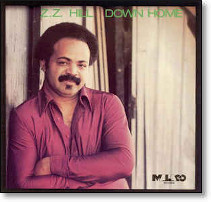 |
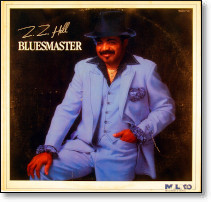 |
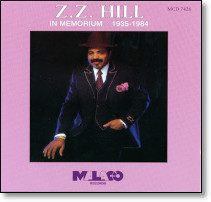 |
 |
 |
 |
Expanded blog post, May archive (in progress).
Music: Current count 35420 [35378] rated (+42), 216 [220] unrated (-4).
Robert Christgau published his Consumer Guide: May, 2021 last week. It included reviews of five albums I had previously weighed in on (his grades in bold, mine in brackets):
- Carsie Blanton: Love and Rage (So Ferocious) A- [A-]
- Lana Del Rey: Chemtrails Over the Country Club (Polydor/Interscope) A- [B+(**)]
- Milo: So the Flies Don't Come (2015, Ruby Yacht) A- [B+(**)]
- Todd Snider: First Agnostic Church of Hope and Wonder (Aimless) B+ [A-]
- Spillage Village: Spilligion (2020, Dreamville/Sincethe80s/Interscope) A [B+(*)]
Only one of these I've replayed is the Milo, which I could have nudged up a notch, but didn't have to. Spilligion got a lot of favorable press late last year, but I only gave it a single play. I checked out records by Khaira Arby and Milo below. I'm feeling a bit iffy about Arby, which strikes me as a bit raw. If I had the time, I might wind up preferring her 2015 album Gossip (unreviewed by Christgau) over the new Live in New York 2010. But I moved on.
Otherwise, I spent more time with my project of checking out old Christgau-graded but unheard-by-me albums -- a list I've been updating as I go along. I did run into a snag on Sunday, when Napster dropped into a deep funk, interrupting the music stream every few seconds, making it nearly impossible to listen to. I finally rebooted, in case background processes were hogging the computer, but with nothing else running it got worse than ever. I've complained. If the problem isn't fixed soon, I should look into other streaming services. Or give up. I can't say as I'm enjoying this very much.
We went to Rubena Bradley's funeral on Saturday. Nice service, warm remembrances. I made some cookies for the reception after (dark chocolate chip, macadamia and white chocolate chip, pecan and salted caramel chip, molasses spice with orange zest). They were pretty good, but upstaged by a tres leches cake topped with whipped cream and strawberries.
I just heard that Bob Erdos died back in 2017. He ran one of my favorite record labels, Stomp Off, and produced most of their 400+ albums. Stomp Off was a niche label, specializing in the obscure genre I like to call "real jazz." When I was writing Jazz Consumer Guide for the Village Voice, I tried chasing him down, and eventually got a single promo album: Ted Des Plantes' Washboard Wizards: Thumpin' and Bumpin' [review link]. (John Gill also sent me some of his records on Stomp Off. See [here for my review of Yerba Buena Stompers: The Yama-Yama Man.) A quick check shows 86 Stomp Off records in my database, 15 A-listed.
Another important label founder, Chicago-based Delmark's Bob Koester (another obit), died last week. Running the same database check, I have 249 Delmark records in my database, 41 A-listed. Probably helped that I got service on their jazz titles -- a mix of AACM/avant and trad jazz -- until recently. They also released a lot of blues (Junior Wells' Hoodoo Man Blues and Magic Sam's West Side Soul put them on the map).
Bassist-composer Mario Pavone died last week. He played with Paul Bley's 1968-72 trio, with Bill Dixon and Anthony Braxton briefly, with Thomas Chapin throughout his shortened career, and has released a couple dozen albums as leader -- my favorites are Dancer's Tales (1996), Deez to Blues (2005), and Arc Trio (2013), with another half-dozen real close, and other highly-regarded albums I haven't heard (including 2 4-star Penguin Guide). Outstanding bassist, but also an exceptionally noteworthy composer.
I'm not following the news very well, but did notice this headline du jour: Man arrested in wife's murder now accused of voting for Trump in her name. As James Thompson noted on Facebook: "Why does every case of voter fraud I hear about concern a Republican committing the fraud?"
Also noticed some pieces about Israel's latest psychotic breakdown. Start with the first two here:
- Phyllis Bennis: Understanding Israel's latest attack on Gaza -- and who benefits.
- Zack Beauchamp: Israel's unraveling: "The wave of riots sweeping Israeli cities reflects the damage done by a decade of divisive right-wing government."
- Hagai El-Ad: Israel has chosen a two-tiered society. Violence is the inevitable result. Executive director of B'Tselem.
- Pankaj Mishra: Israel faces greater dangers than Hamas: "From sectarian passions to shifting tides of global opinion, there are threats that missiles can't defend against."
- Cameron Peters: "Shocked and horrified": Gaza news bureau is destroyed on live TV. AP and Al Jazeera were among the targets.
- Ishaan Tharoor: The US calls for 'calm' between Israelis and Palestinians. But it's part of the problem.
- Miriam Berger: As rival gangs of Jews and Arabs clash on streets, fears mount of irreparable damage to Israeli society.
- Dalia Hatuqa: Settlement push in East Jerusalem neighborhood shows Israeli "Apartheid": why quotes around Apartheid?
- Robert Mackey: This is not fine: Why video of an ultranationalist frenzy in Jerusalem is so unsettling; also Andrew Yang can't explain when asked why he supports Israel bombing Gaza.
- Alex Ward: Trump's signature Israel policy had a key flaw. We're seeing it now.
- Zachary B Wolf: Biden faces an angry rift in his own party over Israeli-Palestinian conflict.
- Patrick Cockburn: Biden can't avoid the Israeli-Palestinian conflict.
- Nathan J Brown: The old Israeli-Palestinian conflict is dead -- long live the emerging Israeli-Palestinian conflict: Lousy title, but the point matters, as you cannot solve the current conflict, which is about human rights, using the old framework, which was based on partition.
- Peter Beinart: Teshuvah: A Jewish case for Palestinian refugee return.
- Kelley Beaucar Vlahos: It's time to put this dysfunctional US-Israeli relationship to the test.
If you want more depth, look to Mondoweiss and Tikun Olam. Early reports in the mainstream US press were almost comically biased with tortured false equivalencies, but as the destruction has accumulated, Israel's deliberation has become harder to ignore, let alone deny. I'm particularly struck by references to "mowing the grass": I wonder how much grass there is in Israel, let alone Gaza; I wonder if the phrase wasn't tuned to appeal to Americans, as it implies something that is both routine and aesthetically pleasing; I wonder whether they realize that the main effect of mowing grass is to stimulate growth. The only thing Israel's periodic assaults on Gaza guarantees is that they'll feel the need to do it again in the not-so-distant future.
I've spent some time thinking over whether I should try to write another big piece on Israel. I spent a lot of time researching the subject in the early 2000s. In particular, I thought a lot about how to construct a mutually satisfactory solution. (From 2005, see: A New Peace Plan for Resolving the Israel Conflict.) The situation has changed considerably since then. As I noted above, from the Peel Commission in 1936 through the Bush Roadmap of 2003 (and its ever-fainter echoes, the Mitchell diplomacy of 2010-11, and the Kerry parameters of 2016), most thinking about solutions was based on Partition, with or without Transfer. Israel has occasionally voiced support for such schemes, but never committed to borders, and never been satisfied with the non-Jewish presence within their control, so no permanent "solution" has been possible. I'd argue that this has been consistent with their original colonial project, and has been legitimized because world powers (notably the UK and US) are used to thinking in such terms, but that argument isn't very helpful.
The only way out of this trap is to refocus not on states but on people, as individuals, deserving the full complement of what we now tend to call Human Rights. If everyone has the same rights wherever they live, states and their boundaries are arbitrary and irrelevant (not in the short term, but increasingly over time). As an engineer, I have some pet ideas about how to make this work. But what I've learned from experience is that nobody likes my ideas on this -- I'd say because they're all stuck in the injustices of the past, and would rather stay there. (One of the first books I read on the subject caught this idea in its title: Righteous Victims, by Benny Morris, in 1999, just before he made his hard-right political turn.)
So for now I'm sitting on my ideas, venturing no more than the tease above. I will say that neither Israel nor the Palestinians will embrace my proposals, so to have any chance they'd have to be adopted by a wide swath of world opinion, especially in the US and Europe. Several of the pieces above suggest that opinion is shifting, not just on Israel's own motives and actions but on the US "blank check" which has only led to greater racism and militarism in Israel. But also, as the piece on Andrew Yang shows, that there is still a long ways to go.
I have been working a bit on editing the Trump book. Got up to my big November 12, 2016 election entry, which took a lot of work, not because I regretted anything but because it's so damn long. Next up is the "Election Roundup" on November 19, although if you follow the link, scroll up to "Golden Oldies (5)" on November 16, which quotes various things I wrote from 2006. You may recall that was one of those years Israel tried to "mow the grass," first in the West Bank, then Gaza, then most dramatically in Lebanon. This is still a good paragraph:
The irony in all this is that the neocons got snookered worse than anyone in thinking of Israel as the model the American military should aspire to. The fact is that Israel hasn't had anything resembling a clean military victory since 1967. The War of Attrition with Egypt was exactly that. 1973 was a draw perceived as a psychological defeat. Lebanon was a bloody, pointless mess from the very start, dragged out to 18 years only to give Hezbollah training. The counter-intifadas were like trying to fight roaches by pummelling them with garbage.
Beginning to have doubts that editing the Trump blogs will work as a book. There must be a simpler, clearer way to say what needs to be said. As fascinating as watching a trainwreck might be, in the end the pile of rubble is what matters.
Going through my questions, I have three that I've been sitting on, though one is more of a suggestion than a question, and the other two are asking for or second-guessing grades. (Of course, Buck 65 is great, but I have no idea how anyone ranks over a decade. Of course, Laurie Anderson's Strange Angels is an A+. Of course, if you collect three good albums into a 2-CD package, the product is still a good one -- but why should I bother grading every configuration? I could have spent 3-4 days going over every configuration of Gladys Knight's Motowns, but they'd all wind up pretty much the same. (But in her case, the shorter Millennium Collection strikes me as the better value.)
Use this form to ask me something.
New records reviewed this week:
- Aaron Germain: Bell Projections (2015-20 [2021], Aaron Germain Music): [cd]: B+(*)
- Maria Grand: Reciprocity (2020 [2021], Biophilia): [cd]: B+(***)
- Jeannine Otis: Into My Heart (2021, Adrielle Music/Monpolyhouse): [cd]: B+(**)
- Jen Shyu & Jade Tongue: Zero Grasses: Ritual for the Losses (2019-20 [2021], Pi): [cd]: C+
- Amber Weekes: 'Round Midnight Re-Imagined (2021, Amber Inn Productions): [cd]: B+(*)
Recent reissues, compilations, and vault discoveries:
- Khaira Arby: Live in New York 2010 (2010 [2021], Clermont Music): [r]: A-
- Aaron Neville: Tell It Like It Is: The Sansu Years (1968-75 [2020], HHO)
Old music:
- Khaira Arby: Tchini Tchini (2012, Clermont Music, EP): [r]: B+(***)
- Khaira Arby: Gossip (2015, Clermont Music): [r]: B+(***)
- Z.Z. Hill: The Complete Hill Records Collection/UA Recordings 1972-1975 (1972-75 [1996], Capitol, 2CD): [r]: B+(*)
- Z.Z. Hill: This Time They Told the Truth: The Columbia Years (1978-79 [1998], Columbia/Legacy): [r]: B
- Z.Z. Hill: Z.Z. Hill (1981, Malaco): [r]: B+(**)
- Z.Z. Hill: Down Home (1982, Malaco): [r]: A-
- Z.Z. Hill: The Rhythm & the Blues (1982, Malaco): [r]: B+(**)
- Z.Z. HIll: I'm a Blues Man (1983, Malaco): [r]: B+(***)
- Z.Z. Hill: Bluesmaster (1984, Malaco): [r]: A-
- Z.Z. Hill: In Memoriam 1935-1984 (1981-84 [1985], Malaco): [r]: A-
- Alberta Hunter: The Glory of Alberta Hunter (1982, Columbia): [yt]: B+(**)
- The Jive Five: Here We Are! (1982, Ambient Sound): [r]: B+(**)
- The Jive Five: Their Greatest Hits (1961-63 [1990], Collectables): [r]: B+(**)
- Joy of Cooking: Castles (1972, Capitol): [r]: A-
- Joy of Cooking: Back to Your Heart (1968-72 [2006], Njoy, 2CD): [r]: B+(**)
- Mory Kanté: Sabou (2004, Riverboat): [r]: B+(***)
- Gladys Knight and the Pips: Greatest Hits (1967-70 [1970], Soul): [r]: B+(**)
- Gladys Knight & the Pips: The Definitive Collection (1967-73 [2008], Motown): [r]: B+(***)
- Gladys Knight & the Pips: Claudine (1974, Capitol): [r]: B+(***)
- Milo: A Toothpaste Suburb (2014, Hellfyre Club): [r]: B+(**)
- Milo: Who Told You to Think??!!?!?!?! (2017, Ruby Yacht): [r]: A-
- My Bloody Valentine: Isn't Anything (1988, Relativity): [yt]: B
- My Bloody Valentine: Tremolo (1991, Sire, EP): [r]: C+
- My Bloody Valentine: MBV (2013, MBV): [r]: B-
- The Naysayer: Deathwhisker (2000, Carrot Top): [r]: B+(*)
- The Naysayer: Pure Beauty (2002 [2003], Carrot Top, EP): [r]: B+(***)
- Aaron Neville: Make Me Strong (1968-75 [1986], Charly): [r]: B+(***)
- Aaron Neville: The Classic Aaron Neville: My Greatest Gift (1966-75 [1990], Rounder): [r]: B+(***)
- Aaron Neville: Hercules (1961-75 [1993], Charly): [r]: A-
- Aaron Neville: Orchid in the Storm (1985, Passport, EP): [r]: B+(***)
- Aaron Neville: Nature Boy: The Standards Album (2003, Verve): [r]: B+(*)
- Aaron Neville: Bring It on Home . . . The Soul Classics (2006, Burgundy): [r]: B+(**)
- New Order: Republic (1993, Qwest): [r]: B+(***)
Unpacking: Found in the mail last week:
- Andre Ferreri Quintetto: Numero Uno (Laser) [05-31]
- Doug MacDonald: Live in Hawaii (DMAC Music)
- Uassyn: Zacharya (JazzThing)
Monday, May 10, 2021
Music Week
 |
 |
 |
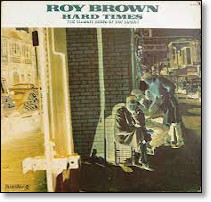 |
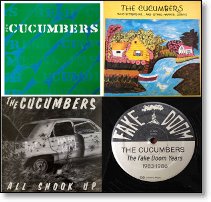 |
 |
 |
Expanded blog post, May archive (in progress).
Music: Current count 35378 [35336] rated (+42), 220 [220] unrated (+0).
Mostly old music again, continuing down my list of albums graded by Christgau but unheard (at least in that specific release) by me. Started with Sam Baker, whose earlier (somewhat better) albums were reviewed last week. At this late date, the records tend to get a single play (unless something seems like it might be worth clarifying). I also occasionally check out lesser graded albums that catch my fancy (e.g., Lester Bangs, Handsome Boy Modelling School)), and delve deeper into some catalogs. I'm not done with Z.Z. Hill, although I'm pretty sure that the essential album is Malaco's 1986 Greatest Hits.
I've resorted my 2021 pending list to keep the records in release order. I'm trying to review things that are out, and hold back on future releases (3 well into June). Would probably be more helpful to sort the box I keep them in, but that's harder to do. Only six records in the queue that are out now but I haven't gotten to.
Very sad this week to hear that Ed Ward died. (For obituaries, see: New York Times; NPR; Rolling Stone; Austin American-Statesman. Ward was one of the main rock critics I read in the mid-1970s, leading to my own brief fling at freelance rock crit. I never met him, but we corresponded a bit, and I remember him as being very open and supportive. I learned a lot from his section in Rock of Ages: The Rolling Stone History of Rock & Roll. In recent years, he returned to Austin, and published two volumes of rock history, up to 1977.
Two more deaths need to be noted here. Lloyd Price (88) was a major r&b and pop star in the 1950s. His early Specialty hits are worth owning (e.g., Lawdy!), but his 1956-60 pop hits (see Greatest Hits: The Original ABC-Paramount Recordings) are the ones I remember from my youth. In the 1960s he moved into business, and seems to have been quite successful there, too.
Curtis Fuller (86) also died. He was one of the most prolific trombonists of the hard bop era, most notably with Art Blakey's Jazz Messengers (1961-66), but he led a couple dozen album, and played on many more, with a great many of the luminaries of the era. I recognized dozens of albums on his credits list, but when I went to compile an A-list I was surprised not to find many (9, 3 of those with Blakey; others with Sonny Clark, John Coltrane, Art Farmer, Benny Golson, Blue Mitchell, Ernie Wilkins; surprised by how many records on the list I've heard of but haven't heard).
I'll also note that our friend Ruby Bradley's obituary belatedly appeared in the Wichita Eagle, albeit with her name misspelled. Service on Saturday, May 15. Hopefully the Eagle will correct their error. Much the same write up is also at Cochran Mortuary.
Saturday night was the first time in over a year when we had a guest over for dinner. I fixed paella valenciana (see picture), with chicken wings, kielbasa, Chinese sausage, shrimp, and lobster tail. To complement it, I made some tapas/salads (cw in picture): white beans, mushrooms in garlic sauce, cabbage and green bell pepper slaw, tuna-egg-tomato salad, roasted pepper salad. Had strawberry shortcake, key lime pie, and whipped cream on both for dessert. Food was as good as I expected, but the big surprise was getting it all done exactly on time.
I hadn't really planned the tapas part out. I thumbed through Penelope Casas' Tapas book for ideas, and noted the mushrooms and peppers recipes. For the beans and tuna recipes, I simply raided the pantry, glad to use up old cans. I bought the cabbage for my regular slaw recipe, but this was close enough I thought I'd try it. One thing I thought about making was deviled eggs stuffed with salmon, but I made them for lunch today.
I've spent months shopping for a new inkjet printer. Finally ordered a HP OfficeJet 9015e, and tried to set it up over the weekend. Horrible experience, even punting the decision on whether to sign up for their 8-month "free ink" program. They tape over the USB socket to plug the unit into a computer, as the setup can only be run with the printer connected through wi-fi to the Internet. I wound up having to download an app to my phone, then use the phone to set up the wi-fi and update the printer software. Now HP has their spyware installed directly in my office. But from that point, my Linux machines automagically picked up the printer configuration (while not noticing that the old printer had disappeared). I can also print from the phone, and the app knows about paper sizes and ink levels and such. The ink cartridges all have printed circuit cards to ensure I can't use third-party ink. You may wonder where anti-vaxxers get their conspiracy theories, but dealing with companies like HP helps explain today's paranoia.
PS on album covers. I substituted the Cucumbers' Fake Doom Years for their eponymous EP. The actual EP cover is in the top left quadrant of the compilation cover. It's also rated A-. I also didn't bother grabbing a copy of the Handsome Family's Down in the Valley. It's a long out-of-print Irish-only compilation, drawing from three albums reviewed above it. I only bothered because it was on the Christgau A-list, and was only able to do so by stringing a songlist together.
New records reviewed this week:
- Carsie Blanton: Love & Rage (2021, So Ferocious): [r]: A-
- Enzo Carniel/Filippo Vignato Silent Room: Aria (2021, Menace): [cd]: B+(***)
- Marianne Faithfull With Warren Ellis: She Walks in Beauty (2021, BMG): [r]: B+(**)
- Satoko Fujii Tokyo Trio: Moon on the Lake (2020 [2021], Libra): [cd]: B+(***)
- Flow Trio With Joe McPhee: Winter Garden (2020 [2021], ESP-Disk): [cd]: A-
- Noah Haidu/Buster Williams/Billy Hart: Slowly: Song for Keith Jarrett (2020 [2021], An Die Musik): [cd]: B+(**)
- Madre Vaca: The Elements (2020 [2021], Madre Vaca): [cd]: B+(*) [06-12]
Recent reissues, compilations, and vault discoveries:
- The Cucumbers: The Desk Drawer Tapes (1988-2005 [2021], Life Force): [r]: B+(**)
- Ojoyo: Plays Safrojazz (1996 [2021], Sunnyside): [cd]: B+(**) [05-28]
- Steve Tintweiss and the Purple Why: Markstown (1968 [2021], Inky Dot Media): [cd]: B+(***)
Old music:
- Sam Baker: Say Grace (2013, self-released): [r]: B+(***)
- Sam Baker: Land of Doubt (2017, self-released): [r]: B+(*)
- Sam Baker: Horses and Stars (2018 [2019], self-released): [r]: B+(*)
- Lester Bangs and the Delinquents: Juke Savages on the Brazos (1981, Live Wire): [yt]: A-
- Ronnie Barron: Blues Delicacies, Vol. 1 (1979 [1981], Vivid Sound): [yt]: B+(***)
- Roy Brown: Hard Times (1967-68 [1973], Bluesday): [yt]: A-
- Shirley Brown: Woman to Woman (1974, Truth): [r]: B+(**)
- T Bone Burnett: Trap Door (1982, Warner Brothers, EP): [r]: B+(**)
- T Bone Burnett: T Bone Burnett (1986, Dot): [r]: B+(**)
- Joe Cocker: Joe Cocker's Greatest Hits (1969-76 [1977], A&M): [r]: B+(***)
- Johnny Copeland: Fuel Presents an Introduction to Johnny Copeland (1961-67 [2006], Fuel 2000): [r]: B+(**)
- Johnny Copeland: Copeland Special (1981, Rounder): [yt]: B+(***)
- The Cucumbers: The Cucumbers (1983, Fake Doom, EP): [r]: A-
- The Cucumbers: Total Vegility (1999, Home Office): [r]: B+(**)
- Miles Davis: Water Babies (1967-68 [1976], Columbia): [r]: B+(**)
- Miles Davis: Circle in the Round (1955-70 [1979], Columbia, 2CD): [r]: B+(**)
- Miles Davis: The Man With the Horn (1980-81 [1981], Columbia): [r]: B+(**)
- Miles Davis: Star People (1982-83 [1983], Columbia): [r]: B+(***)
- Kimya Dawson: Hidden Vagenda (2004, K): [r]: A-
- Hakim: Talakik (2002, Mondo Melodia): [r]: B+(***)
- Handsome Boy Modeling School: White People (2004, Atlantic): [r]: B+(***)
- The Handsome Family: Odessa (1994, Carrot Top): [r]: A-
- The Handsome Family: Milk and Scissors (1996, Carrot Top): [r]: B+(**)
- The Handsome Family: Through the Trees (1997, Carrot Top): [r]: B+(**)
- The Handsome Family: Down in the Valley (1994-97 [1999], Independent): [r]: A-
- The Handsome Family: Twilight (2001, Carrot Top): [r]: B+(***)
- The Handsome Family: Smothered and Covered (1993-2001 [2003], Handsome Familly Music): [r]: B+(**)
- The Handsome Family: Singing Bones (2003, Carrot Top): [r]: B+(***)
- Ted Hawkins: Watch Your Step (1982, Rounder): [r]: B+(***)
- Ted Hawkins: Happy Hour (1986, Rounder): [r]: B+(**)
- Henry Cow: Legend (1973, Virgin): [r]: B+(**)
- Henry Cow: Western Culture (1978 [1979], Broadcast: [r]: B+(***)
- Z.Z. Hill: The Brand New Z.Z. Hill (1971, Mankind): [r]: B+(**)
Unpacking: Found in the mail last week:
- Nnenna Freelon: Time Traveler (Origin) [05-21]
- Greg Germann: Tales of Time (Origin) [05-21]
- Brent Jensen: More Sounds of a Dry Martini (Origin) [05-21]
- Matt Niess & the Capitol Bones: The Beat Goes On (Summit)
- Ches Smith/We All Break: Path of Seven Colors (Pyroclastic) [06-11]
- Carlos Vega: Art of the Messenger (Origin) [05-21]
Daily Log
Paste came out with a The Best Albums of 2001 list. Rationale is that it's 20 years ago, a round number, and 1 year before Paste started, so they hadn't done it in real time. Transcribed, with my grades and Christgau's in brackets:
- The Strokes: Is This It [A-,A-]
- Daft Punk: Discovery [B-,C+]
- Gorillaz: Gorillaz [,**]
- The White Stripes: White Blood Cells [A-,A]
- Jay-Z: The Blueprint [B+,A-]
- Radiohead: Amnesiac [B-,***]
- The Shins: Oh, Inverted World [,*]
- Weezer: Weezer [Green Album] [,]
- Drive-By Truckers: Southern Rock Opera [A-,A-]
- Gillian Welch: Time (The Revelator) [A-,]
- Björk: Vespertine [C-,A-]
- System of a Down: Toxicity [*,*]
- Spoon: Girls Can Tell [B+,B+]
- N.E.R.D.: In Search of . . . [A,A-]
- Sparklehorse: It's a Wonderful Life [,]
- The New Pornographers: Mass Romantic [B,A-]
- Bob Dylan: Love and Theft [A,A+]
- Spiritualized: Let It Come Down [,]
- Rodney Crowell: The Houston Kid [A-,A-]
- Jimmy Eat World: Bleed American [B-,C+]
- Guided by Voices: Isolation Drills [,]
- Aaliyah: Aaliyah [,***]
- O Brother, Where Art Thou? [B+,]
- Dismemberment Plan: Change [,***]
- Fugazi: The Argument [,B+]
Michaelangelo Matos ballot for Rolling Stone 500 Greatest Albums list:
- Penguin Café Orchestra (Editions EG 1981)
- Sly and the Family Stone There's a Riot Goin' On (Epic 1971)
- Prince, Sign 'O' the Times (Paisley Park/Warner Bros. 1987)
- The Go-Betweens, Oceans Apart (Yep Roc 2005)
- The Beatles Revolver (EMI 1966)
- James Brown Star Time (Polydor 1991)
- The Velvet Underground (Verve 1969)
- The Avalanches Since I Left You (Modular/XL 2001)
- Lifter Puller Fiestas + Fiascos (The Self-Starter Foundation 2000)
- Triple R Friends (Kompakt 2002)
- Richard and Linda Thompson I Want to See the Bright Lights Tonight (Island 1974)
- DJ DB History of Our World Part 1: Breakbeat & Jungle Ultramix (Sm:)e/Profile 1994)
- The Rolling Stones Let It Bleed (London 1969)
- Michael Jackson Off the Wall (Epic 1979)
- Public Enemy It Takes a Nation of Millions to Hold Us Back (Def Jam 1988)
- Lone Emerald Fantasy Tracks (Magic Wire 2010)
- Bob Dylan "Love and Theft" (Columbia 2001)
- Ocean of Sound (Virgin AMBT 1996)
- Ivy Apartment Life [original mix] (Atlantic 1997)
- R.E.M. Automatic for the People (Warner Bros. 1992)
- Marshall Crenshaw Field Day (Warner Bros. 1983)
- Tougher Than Tough: The Story of Jamaican Music (Mango 1993)
- DJ /rupture Gold Teeth Thief (Negrophonic 2001)
- Steve Reich Music for 18 Musicians (ECM 1978)
- Jeff Mills Live at the Liquid Room, Tokyo (React 1996)
- Rod Stewart Every Picture Tells a Story (Mercury 1971)
- Chuck Berry The Great Twenty-Eight (Chess 1982)
- Daft Punk Discovery (Virgin 2001)
- L.L. Cool J Mama Said Knock You Out (Def Jam 1990)
- The Indestructible Beat of Soweto (Earthworks 1985)
- Van Morrison It's Too Late to Stop Now (Polydor 1974)
- Tabu Ley Rochereau The Voice of Lightness Vol. 1 (Stern's 2007)
- Spring Heel Jack 68 Million Shades . . . (Trade 2/Island 1996)
- Luomo Vocalcity (Force Tracks 2000)
- Duke Ellington The Far East Suite (Bluebird 1967)
- Tricky Maxinquaye (Island 1995)
- The Mountain Goats The Sunset Tree (4AD 2005)
- Superlongevity 2 (Perlon 2001) [mixed by DJ Zip]
- M.I.A. Kala (Island 2007)
- The Replacements Let It Be (Twin/Tone 1984)
- Elvis Costello and the Attractions Trust (Columbia 1981)
- The Golden Age of American Popular Music: The Jazz Hits (Ace 2008)
- X-Ray Spex Germfree Adolescents (Virgin 1978)
- Smokey Robinson and the Miracles Greatest Hits Vol. 2 (Motown 1967)
- Chic Risque (Atlantic 1979)
- John Peel Fabriclive 07 (Fabric 2002)
- PJ Harvey Rid of Me (Island 1993)
- Sonic Youth Sonic Nurse (Geffen 2004)
- Ne-Yo Year of the Gentleman (Motown 2008)
- DJ Koze Reincarnations: The Remix Chapter 2001-2009 (Get Physical 2009)
Sidney Carpenter-Wilson April 2021 album report: A-List: Carsie Blanton: Love & Rage; Eleventh Day Dream: Since Grazed; Joe Fahey: February on Ice*; Jeff Rosenstock: SKA DREAM; Sarah Mary Chadwick: Me and Ennui Are Friends, Baby*; Miguel: Art Dealer Chic 4 - EP; The Airport 77s: Rotation*; Vijay Iyer, Linda May Han Oh & Tyshawn Sorey: Uneasy; Nervous Dater: Call in the Mess*; BROCKHAMPTON: ROADRUNNER: NEW; LIGHT, NEW MACHINE; Dry Cleaning: New Long Leg; Carly Pearce: 29*. B-List: Palberta: Palberta 5000*; Du Blonde: Homecoming; Tom Jones: Surrounded By Time; Penelope Scott: Public Void*; Ashley Monroe: Rosegold; Crumb: Ice Melt; Todd Snider: First Agnostic Church of Hope and Wonder; Burial & Blackdown: Shock Power of Love - EP; Kero Kero Bonito: Civilisation II; The Sprawl: Cancelled Future; BaianaSystem: ATO 3: América do Sol; Lande Hekt: Going to Hell*. Honorable Mentions: Dinosaur Jr.: Sweep It Into Space; Conway the Machine: La Maquina; Jinx Lennon: Liferafts for Latchicos; Ballaké Sissoko: Djourou; SPIRIT OF THE BEEHIVE: ENTERTAINMENT, DEATH; Demi Lovato: Dancing With The Devil... The Art of Starting Over; Porter Robinson: Nurture; Girl in red: if I could make it go quiet; Priscilla Block: Priscilla Block - EP; Julia Stone: Sixty Summers; Ryley Walker: Course In Fable; Nick Waterhouse: Promenade Blues. But Not For Me: Dawn Richard: Second Line; The Armed: Ultrapop.
Greg Magarian linked to an article on Israel, by Ishaan Tharoor: The U.S. calls for 'calm' between Israelis and Palestinians. But it's part of the problem. I commented:
Only three times has the US had any significant effect in moderating Israel: Eisenhower pressed Israel to withdraw from Sinai after the 1956 war; Carter pressed Israel to withdraw from Lebanon in 1977; and GWH Bush chilled relations with Shamir so much that Rabin was able to return to power. Less publicized is that after the 1967 war, the US may have got Israel to halt its expulsion of Palestinians, especially from Tulkarm. But from Clinton on, Israel has called the shots, with minimal nods to Washington as a hypothetical "peace broker." Clinton had the advantage of working with Labor governments who supported the cosmetic "peace process," but when talks broke down, he followed Barak in putting the entire blame on Arafat. GW Bush effectively gave Sharon a blank check. Obama dithered, managing to become unpopular in Israel, without having any effect. Trump surrendered any illusion that the US has its own foreign policy. But the US never had, or at least never exercised, any control over Israel. Moshe Dayan, back in the 1960s, said: "The Americans give us money, arms, and advice. We take the money and arms, and ignore the advice." Back then, both understood the need to at least pretending to adhere to international law. That's gone now, and it's not going to be easy to restore, even if Biden wanted to. One downside is that with blind spots like Israel (and Saudi Arabia) no one can take what the US says about human rights seriously.
Saturday, May 08, 2021
Daily Log
Christian Iszchak April listening report: A-list: Dry Cleaning: New Long Leg; Lana Del Rey: Chemtrails Over The Country Club; Brockhampton: ROADRUNNER: NEW LIGHT, NEW MACHINE; Taylor Swift: Fearless (Taylor's Version); Withered Hand: Ten Years (2020); Sarah Mary Chadwick: Me and Ennui Are Friends, Baby. B-list: Cloud Nothings: The Shadow I Remember; Kiwi Jr: Football Money (2020); Tune-Yards: sketchy. Honourable mentions: Todd Snider: First Agnostic Church of Hope and Wonder; Jess Locke: Don't Ask Yourself Why; Shez Raja: Tales from the Punjab; Remember Sports: Like a Stone.
Monday, May 03, 2021
Music Week
 |
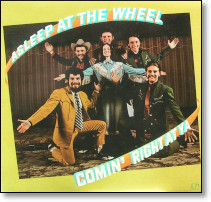 |
 |
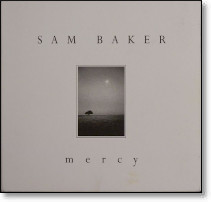 |
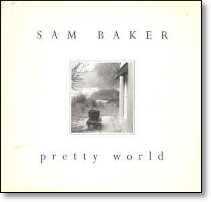 |
 |
 |
 |
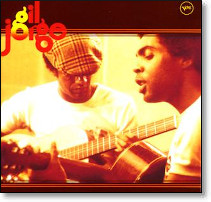 |
Expanded blog post, May archive (in progress).
Music: Current count 35336 [35287] rated (+49), 220 [220] unrated (+0).
The music part is easy enough to introduce. Early in the week, I pulled enough new music from the demo queue to keep the backlog count even. I tried to grab things that were already available, but I went ahead with Simon Moullier (out June 11) after I inadvertently slapped it on. The other future release is the new James Brandon Lewis, coming out later this week. I couldn't wait.
I did a little work last week adding jazz records to my tracking file, so that suggested some of the new non-CD records, and leaves me more for the future. First time I did that this year, but the list currently has 109 unheard records (almost all jazz), in addition to the 226 records I have rated (or have in my queue). Still far from exhaustive. (I've only made it about 50% of the way through Discogs 2021 jazz list, and have only picked out records that struck me as interesting.)
More old music again. I lost track of where I was with my file of albums that Christgau has graded but I haven't heard, so started again at the top, with Asleep at the Wheel and Asylum Street Spankers. I like the former's more recent Bob Wills tributes (Ride With Bob and Still the King), also the Spankers' The Last Laugh, but had heard little of their earlier work. I also had totally missed Sam Baker. Still working on him.
Before that I took a dive into Jorge Ben, who Christgau hasn't reviewed (except for Gil E Jorge). I had listened to a fair amount of Gilberto Gil recently, which led to the Ben recommendation. I had two unrated Ben albums in my database: Tropical and Samba Nova, both on Mango in 1976, but I couldn't find the LPs. I did find the former on YouTube, but not the latter -- a comp from 1970-74 albums, but I couldn't find enough of them to assemble a songlist, so I wound up dropping it from my unrated list.
While researching the Ben albums, I was surprised to find Wikipedia citing my grades for albums I had never heard before. Turns out the grades came from a notebook entry, where I had squirreled away a multi-part "Jorge Ben Projeto" that Rodney Taylor had posted on the now-defunct MSN Expert Witness forum. Taylor covers everything there, but it turns out he later revised and greatly expanded his piece, available on his Brazil Beat blog. Someone should alert Wikipedia and get them to credit the grades properly. They definitely shouldn't drop them, nor should they substitute (or even include) my new grades, which are little more than guesses from someone who knows very little about Brazilian music, who doesn't speak or follow the language, and who has rarely heard these records more than once or twice.
For resources on Brazilian music, I should also mention Cam Patterson's Brazil Project, which also dates from MSN EW days (2011), and I've long hosted in my "guests" space. Knowing a little bit more now than I did then, I should revisit the piece and check out some of his recommendations.
Still not finding much new non-jazz that appeals to me, but I'm not looking very hard. Just notice Phil Overeem's Most Euphonious Fruit of First Quarter, 2021, so I have work to do catching up, but will note that his 3 and 5 picks are new jazz: James Brandon Lewis's Jesup Wagon and Miguel Zenon's Law Years, which rank pretty high on my 2021 list.
Christgau wrote a nice, ungraded review of Peter Stampfel's 20th Century in 100 Songs. I slogged through the Bandcamp a while back, and gave it a B+(**). Chances are that in CD-sized chunks, with the nice packaging and extensive documentation, it might rate better -- although I may have already cut him some slack.Bought a new printer, and I'm already hugely annoyed at HP for insisting that it be connected to the Internet and not to my computer for set up. Supposedly I get eight months of "free ink," but looks like I have to sign up for a subscription to get that. We hardly ever print anything, so this involves a lot of speculation. Trying to clean up and reorganize as I go on, so that's another excuse to take it slow.
Made trivial progress on memoir last week, a bit more on collecting the blog posts into a Trump era book. I need to be very selective with the latter, to compress 2800 pages into something like 300. I find I'm doing a lot of rewriting as I proceed -- not that I need to change my arguments so much as I'm seeing easy ways to squeeze sentences into more compact form. At least, until I ran into the RNC in July, 2016 post, which includes a long intro that is too kind to Trump. At the time, I stressed that Trump was no worse than his rivals. I haven't changed my mind -- thank God we don't four years led by Cruz, Rubio, or Kasich for comparison -- but didn't stress enough how low that bar was.
Sometimes I miss writing about politics, but I sure don't miss the pressure on Sundays. I'm pretty happy with Biden so far. Two things: he recognizes that real answers come from the left these days; and he recalls that Obama's bipartisan outreach fell into a trap, and that Republicans cannot be trusted. Those are big things, and they're not things you would have predicted from him, either based on his 2020 campaign or on his 50-year track record of dealing with the devil. I could rag on him over foreign policy, but it looks like he's taking a circuitous route to progress on Iran and North Korea, and the hot air on China and Russia seems to be just that.
No doubt if I dug deeper, I'd find things to get upset over, but I'm too old to sweat that many details. Jeffrey St. Clair is still trying, but even he is losing much of his vitriol. ("One hundred days of platitudes" is something we should be alarmed by?)
I should write up answers to whatever questions I have pending. I don't have many. Some are mere suggestions, which I may follow up on and maybe even report. Also, questions about specific album grades aren't very interesting. However, if there is something you're curious about, or just want to prod me into expanding on something, now would be a good time to use the form.
New records reviewed this week:
- Lina Allemano Four: Vegetables (2020 [2021], Lumo): [bc]: B+(**)
- Chris Corsano & Bill Orcutt: Made Out of Sound (2020 [2021], Palilalia): [bc]: B+(**)
- David Friesen & Bob Ravenscroft: Passage (2015-20 [2021], Origin): [cd]: B+(**)
- Vincent Herring: Preaching to the Choir (2021, Smoke Sessions): [r]: B+(***)
- James Brandon Lewis Red Lily Quintet: Jesup Wagon (2020 [2021], Tao Forms): [cd]: A- [05-07]
- Damon Locks/Black Monument Ensemble: Now (2020 [2021], International Anthem): [bc]: B+(**)
- Simon Moullier Trio: Countdown (2020 [2021], Fresh Sound New Talent): [cd]: B+(**) [06-11]
- Natural Information Society/Evan Parker: Descension (Out of Our Constrictions) (2019 [2021], Aguirre/Eremite): [r]: B+(***)
- Evan Parker Quartet: All Knavery and Collusion (2019 [2021], Cadillac): [r]: B+(*)
- Nicki Parrott: If You Could Read My Mind (2021, Arbors): [r]: B+(**)
- Rich Pellegrin: Solitude: Solo Improvisations (2019 [2021], OA2): [cd]: B+(**)
- Ruben Reinaldo & Kely Garcia: Acuarel (2019 [2020], Free Code): [cd]: B+(***)
- Jeff Rosenstock: Ska Dream (2021, Polyvinyl): [r]: B+(*)
- Greg Skaff: Polaris (2020 [2021], Smoke Sessions): [r]: B
- Alexa Tarantino: Firefly (2021, Posi-Tone): [r]: B+(**)
Recent reissues, compilations, and vault discoveries:
- Henry Franklin: The Skipper (1972 [2021], Black Jazz/Real Gone Music): [r]: B+(***)
- Henry Franklin: The Skipper at Home (1974, Black Jazz): [r]: B+(*)
- Chester Thompson: Powerhouse (1971 [2021], Black Jazz/Real Gone Music): [r]: B+(*)
Old music:
- Asleep at the Wheel: Comin' Right at Ya (1973, United Artists): [r]: A-
- Asleep at the Wheel: Asleep at the Wheel (1974, Columbia): [r]: B+(**)
- Asleep at the Wheel: Texas Gold (1975, Capitol): [r]: B+(**)
- Asleep at the Wheel: Wheelin' and Dealin' (1976, Capitol): [r]: B+(*)
- Asleep at the Wheel: The Wheel (1977, Capitol): [r]: B+(***)
- Asleep at the Wheel: Collision Course (1978, Capitol): [r]: B
- Asleep at the Wheel: Western Standard Time (1988, Columbia): [r]: B+(*)
- The Asylum Street Spankers: Spanker Madness (2000, Spanks-a-Lot): [r]: A-
- Asylum Street Spankers: Mercurial (2004, Yellow Dog): [r]: B+(***)
- Asylum Street Spankers: What? And Give Up Show Biz? (2008, Yellow Dog, 2CD): [r]: B+(***)
- Au Pairs: Sense and Sensuality (1982, Kamera): [r]: B
- Average White Band: AWB (1974, Atlantic): [r]: B+(**)
- Eric B. & Rakim: Let the Rhythm Hit 'Em (1990, MCA): [r]: B+(***)
- Sam Baker: Mercy (2003 [2004], Blue Lime Stone): [r]: A-
- Sam Baker: Pretty World (2006 [2007], Blue Lime Stone): [r]: A-
- Sam Baker: Cotton (2009, Music Road): [r]: B+(***)
- Jorge Ben: Samba Esquema Novo (1963, Philips): [r]: B+(***)
- Jorge Ben: Sacundin Ben Samba (1964, Philips): [r]: B+(**)
- Jorge Ben: Big Ben (1965, Philips): [r]: B+(*)
- Jorge Ben: O Bidú: Silêncio No Brooklin (1967, Artistas Unidos): [yt]: B+(***)
- Jorge Ben: Jorge Ben (1969, Philips): [r]: A-
- Jorge Ben: Negro É Lindo (1971, Philips): [yt]: B+(***)
- Jorge Ben: A Tábua De Esmeralda (1974, Philips): [r]: B+(***)
- Jorge Ben: Solta O Pavão (1975, Philips): [r]: A-
- Jorge Ben: África Brasil (1976, Philips): [yt]: A-
- Jorge Ben: Tropical (1976, Mango): [yt]: B
- Jorge Ben: Alô Alô, Como Vai? (1980, Som Livre): [r]: B+(**)
- Jorge Ben: Dádiva (1983, Som Livre): [r]: B+(**)
- Gilberto Gil: Refavela (1977, Philips): [r]: B+(***)
- Charles Tolliver Music Inc: Live in Tokyo (1973, Strata-East): [yt]: B+(**)
Further Sampling:
Records I played parts of, but not enough to grade: -- means no interest, - not bad but not a prospect, + some chance, ++ likely prospect.
- Joshua Abrams & Natural Information Society: Mandatory Reality (2017 [2021], Eremite): [bc]: +
- Hedvig Mollestad Trio: Ding Dong. You're Dead. (2021, Rune Grammofon): [bc]: +
Grade (or other) changes:
- Gilberto Gil/Jorge Ben: Gil E Jorge (1975 [1992], Verve): [yt]: [was: B] A-
Unpacking: Found in the mail last week:
- Alchemy Sound Project: Afrika Love (ARC) [05-14]
- Flow Trio With Joe McPhee: Winter Garden (ESP-Disk)
- Satoko Fujii Tokyo Trio: Moon on the Lake (Libra) [05-07]
- Noah Haidu/Buster Williams/Billy Hart: Slowly: Song for Keith Jarrett (An Die Musik) [05-08]
- Liudas Mockunas/Arfvydad Kaziauskas: Purvs (Jersika -2LP)
- Dave Rempis/Tomeka Reid/Joshua Abrams/Tim Daisy/Tyler Damon: The Covid Tapes: Solos, Duos, & Trios (Aerophonic, 2CD) [06-15]
- Almog Sharvit: Get Up or Cry (Unit) [05-28]
- Jen Shyu & Jade Tongue: Zero Grasses: Ritual for the Losses (Pi)
 |
Apr 2021 |